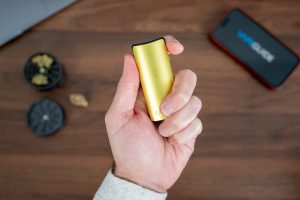Delta-9 THC and Its Many Legal Alternatives
2 min read
Delta-9 THC, which is the principal psychoactive component in cannabis, has sparked interest and intrigue due to its multifaceted effects on the human body.
It interacts with the endocannabinoid system, influencing various physiological processes and manifesting effects such as euphoria, altered perception, and increased appetite.
While Delta-9 THC has therapeutic potential, its legality is subject to its source, with hemp-derived Delta-9 being permissible under the 2018 Farm Bill.
Various Legal Alternatives to the Delta-9 THC
Delta-8 THC
Similar to Delta-9, Delta-8 THC offers milder euphoria, which is often marketed as a legal alternative. Despite its federal legality, potential users should remain vigilant about varying state laws surrounding its use.
Delta-10 THC
This newly discovered cannabinoid resembles Delta-9 THC but is distinguished by its energizing and uplifting effect.
Available from both hemp and cannabis plants, Delta-10 THC serves as a milder option for those seeking psychoactive experiences.
HHC (Hydroxyhexahydrocannabinol)
This synthetic cannabinoid mirrors the effects of Delta-9 THC but is known for inducing more uplifting experiences. Its legal status is recognized at the federal level.
THC-O Acetate
Known for its potent psychoactive impact, THC-O is a synthetic cannabinoid typically reserved for seasoned cannabis users. While legal in some states, others may impose restrictions on its use.
THCA
As the acid form of THC, THCA is present in raw cannabis plants and does not exhibit psychoactive properties. It is often consumed in raw cannabis juice and is believed to possess multiple health benefits.
THCV (Tetrahydrocannabivarin)
THCV is another psychoactive cannabinoid with potential health benefits, including appetite suppression and enhanced cognition.
It’s found typically in sativa strains and is recommended for beginners seeking cerebral clarity and productivity.
CBN (Cannabinol)
CBN is a non-psychoactive cannabinoid derived from aged cannabis plants, known for its sedative properties. It is often employed as a sleep aid, offering potential health benefits without inducing a high.
CBD (Cannabidiol)
CBD, the widely recognized and legally available cannabinoid, is renowned for its potential therapeutic properties, addressing issues such as anxiety, pain, and inflammation without any psychoactive effects.
The Legality Behind Delta-9 THC
Delta-9 THC’s legal availability, contingent upon its derivation from hemp, opens a gateway to exploring its multifarious cousins in the cannabinoid family.
The surge in interest for alternative cannabinoids unveils opportunities to experience varying effects and potential therapeutic benefits without straying into illegal territories.
If you’re navigating this ever-evolving cannabinoid landscape, we suggest you exercise caution and due diligence, ensure you adhere to state laws, and choose products that align you’re your preferences and needs.
Conclusion
The legal complexity surrounding Delta-9 THC and its alternatives requires an understanding of their sources, effects, and legal status.
As the cannabinoid industry continues to evolve, it’s important to stay informed and make responsible choices as you navigate this intricate and dynamic domain.




